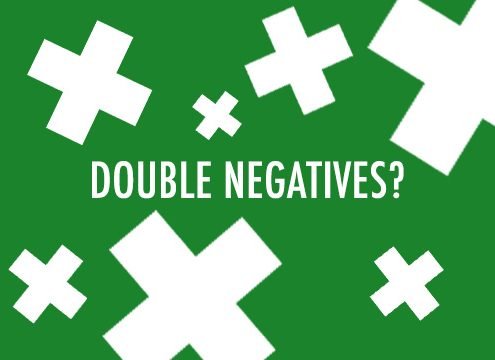In English two (or more) negative words in a sentence is wrong. Let´s look at the idea of a “double negative”.
“No….nada” is not correctly translated by “not…nothing”. In a similar way “no…nunca” is not translated correctly by “not…never”.
Why is a “double negative” wrong? For the English mind a double negative normally makes something positive. In writing and speaking a double negative is confusing to an Englishman.
Consider these correct sentences:
- Mr. Podemos never does anything (Señor Podemos nunca hace nada).
- Nobody ever brings anything (nadie trae nada nunca).
It would be incorrect to say “nobody does nothing”.
There are many words in English that are negative, such as hardly, could not, never and nothing. The best way to get used to the English structure is understand many examples. So, study these:
- She barely eats (= apenas come).
- She barely eats anything (apenas come nada).
- He did not speak (no hablo).
- He said nothing (no dijo nada).
So to make a sentence negative, add the negative word to the verb or adjective. Examine these positive and negative sentences:
- We are planning a trip to the moon.
- We are not planning a trip to the moon.
- Learning English is easy.
- Learning English is not easy
So no more double negatives, please!











